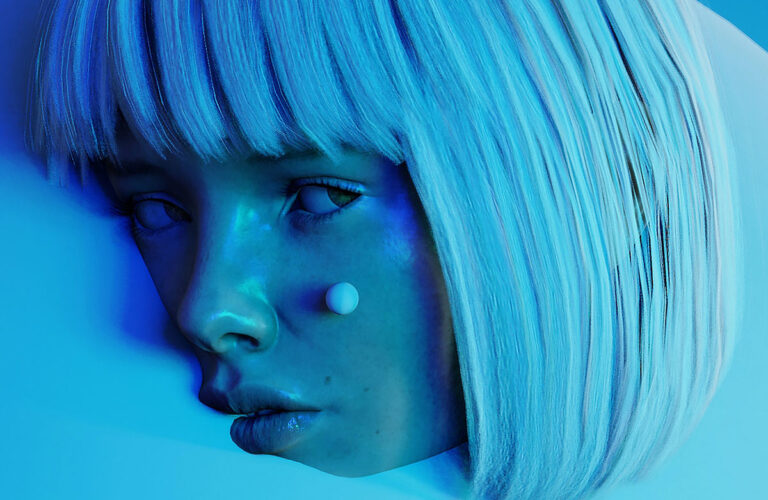Downblousing and deepfakes: what are they and why does a UK Law Commission want to criminalise them?

The Law Commission of England and Wales had proposed and recommended to the government that acts like ‘downblousing’ without consent should be made illegal and punishable by up to three years in prison. As we have done with other sex-related crimes, we’ve broken down clearly the acts themselves and their current status in law—and how the Law Commission plans on changing them.
What is downblousing?
Downblousing follows the same type of behaviour that can be seen in predatory acts of photography like the infamous act of ‘creepshotting’ or ‘upskirting’. These terms are used to refer to when a person (usually feminine presenting) is photographed without their consent in a manner to evoke sexual harassment and intimidation—for upskirting in particular, it is currently defined by the UK government as “a highly intrusive practice, which typically involves someone taking a picture under another person’s clothing without their knowledge, with the intention of viewing their genitals or buttocks (with or without underwear).”
In parallel to the act of upskirting, downblousing—as the name would suggest—involves the act of taking pictures down a woman’s top without consent. Keeping that in mind, it makes complete sense that the Law Commission wants it to be made as criminal as upskirting. Largely down to the campaigning of activist and victim of upskirting herself, Gina Martin, the act was officially ruled a sexual offence in 2019.
The laws for downblousing, deepfake pornography and revenge porn
Downblousing could soon follow suit onto the path of criminalisation after such calls from the Law Commission as part of a larger crackdown on the sharing of personal explicit material. This opinion by the independent inspecting body comes after a review of so-called “patchwork” laws that have failed to be updated in time with new advances in technology—helping perpetrators to evade prosecution—and proposed that changes must be made to cover all acts of the sharing intimate imagery without consent, as per The Independent’s report.
Though ‘revenge porn’ itself has been illegal since 2015, reports suggested the act had only increased during COVID-19 lockdowns in 2020 and as the Law Commission suggested, new technologies have only aided the distribution of such content. Aside from just downblousing, the body wants further progress made on other acts like pornographic deepfakes, also known as deepnudes. Though the discussion around deepfakes—AI synthetic media in which a person is superimposed onto another to mirror their likeness—has largely been around, its potential dangerous use in politics and its debated ‘trustworthiness’ have previously made headlines, deepfake porn is a whole other, soon-to-be illegal, matter.
“There have been many reported cases of people using deepfake nudes or videos to harm someone else’s reputation—revenge porn is a serious issue that deepfake may be perpetuating… Governments must continue researching deepfake technology to enact legislation that will protect victims in cases of deepfake porn, where images or videos of them are used inappropriately,” as per SCREENSHOT’s 2021 report. And it looks like it may finally be happening.
Alongside both downblousing and pornographic deepfakes, the Law Commission wants to see AI examples of digitally removing a person’s clothing fall into the same illegal category as well as strengthening voyeurism laws by prohibiting and criminalising the use of hidden camera equipment in Airbnb properties, Sky News reported.
What is it proposing?
So, what’s on the cards when it comes to legal punishment for such acts? Well, the Commission is offering up a proposal of a base-level offence that would cover all examples (as aforementioned) of intentionally taking and distributing explicit material of a person without their consent—which would come with a maximum penalty of six months’ imprisonment, The Independent disclosed.
Sentences would then be further increased and toughened depending on the motivations behind the practice. For example, if the intent was to cause humiliation (as in the case of revenge porn), harassment, to threaten or blackmail, installation of hidden equipment, or for sexual enjoyment of the perpetrator, sentences of two to three years were also proposed by the body, as per the BBC.
These new proposals would exclude circumstantial cases and socialised nature of certain image-taking conduct that “is not morally wrongful or harmful,” like the sharing of nude, or partially-nude pictures of newborn babies on social media—though for many, as per SCREENSHOT’s investigation into the dangerous paedophile rings preying on kidfluencer content, children and their images should be protected. In fact, following the increased attention on this issue, MPs actually plead in May 2022 for new protection laws against the dark web of paedophile rings.
Professor Penney Lewis, Law Commissioner for criminal law, had this to say about the downblousing (and more) proposals: “Our new reforms for government will broaden the scope of the criminal law to ensure that no perpetrators of these deeply damaging acts can evade prosecution, and that victims are given effective protection.”
All victims of offences following the enactment of these laws would be eligible for lifetime anonymity and continued protection in the case of a trial—giving evidence behind a screen or pre-recorded.




